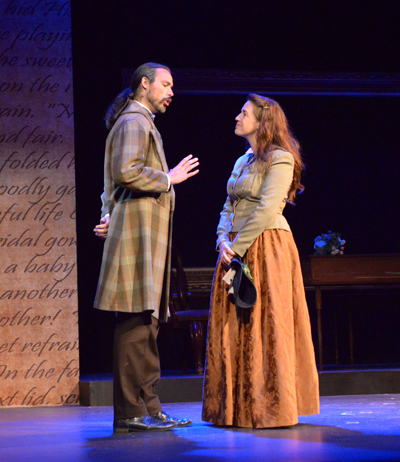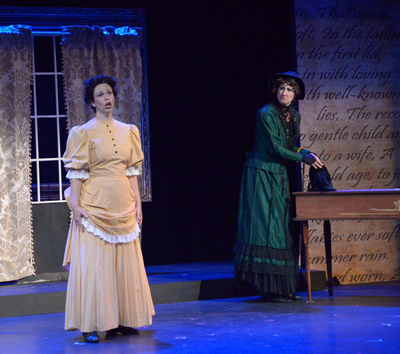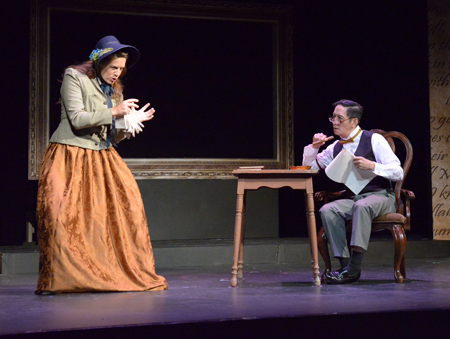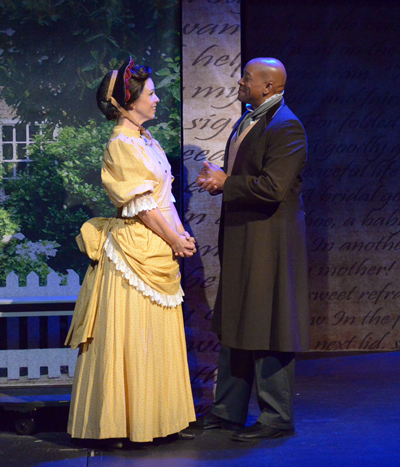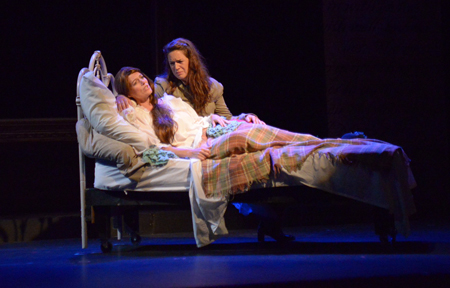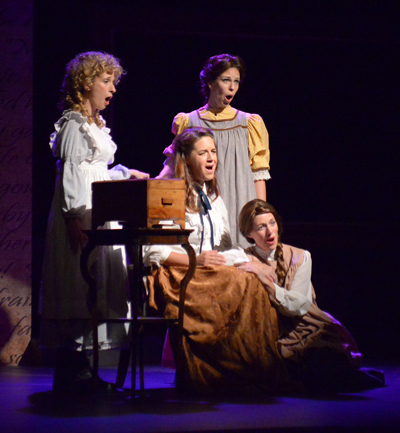by Daniel Hathaway
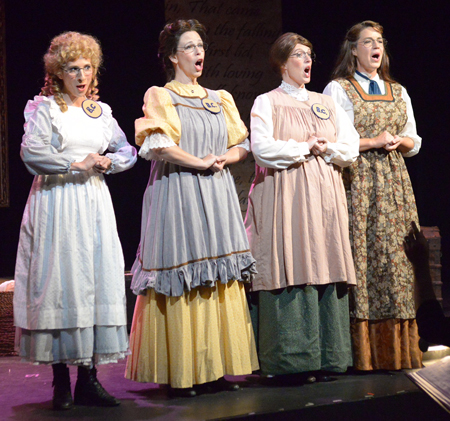
Based on Louisa May Alcott’s classic novel about four New England sisters coming of age just after the Civil War, the story centers around Jo March, who resists change and loss even as she strives to buck societal norms and establish herself as a free-spirited young writer. The role was memorably sung and acted by the indefatigable Erin Sura.
We meet the four sisters in the attic of the March house at the top of the story, and revisit them at the end of the opera. As described by the composer, there’s the “distracted” Meg (Denise Milner Howell), the “ethereal” composer Beth (Lara Troyer), and the “peppery” artist Amy (Melissa Davis), the vagaries of whose lives we’ll follow through the course of the opera. Marriages (Meg to John Brooke, and Amy to Theodore Lawrence — “Laurie”) and Beth’s demise bring joy and grief to the narrative. Finally, Jo accepts that things will never be as perfect as they once were, and finds her destiny with the German intellectual Friedrich Bhaer.
Sura, Howell, Troyer, and Davis brought distinct personalities and alluring individual voices to the roles of the four sisters. Baritone Brian Keith Johnson and tenor Timothy Culver were reliably excellent as Brooke and Laurie.
Frank Ward Jr. and Cynthia Wohlschlager lent their strong dramatic and vocal presence to the roles of the parents, Gideon and Alma March. Sandra Ross provided wonderful comedy relief as Cecilia March, the overbearing, Lady Bracknell-like aunt, and Peter Johnson was a resonant and dignified Friedrick Bhaer. Jason Fuh made the most of his cameo appearance as Mr. Dashwood, the sleazy New York publisher of potboiler novels.
Fidelia Darmahkasih, Kaylee Gallagher, Erin Moll, and Vanessa Naghdi comprised the ghostly quartet who sang in tight chords inside a picture frame in the March attic at the beginning and end of the show. Music Director John Simmons strategically paced the musical action, and pianist Richard Jeric colorfully realized the orchestra parts at a Steinway grand (no room for instrumentalists). Chris Wortman served both as page turner and occasional kick drummer.
Stage director Marla Berg skillfully deployed her cast within the lovely period set designed by Benjamin Needham (framed by elegant 19th-century calligraphy) and evocatively lit by Marcus Dana. Elegant period costumery and props were the work of Maureen Thomas.
Composer Mark Adamo chose to use two musical styles for Little Women: a lyrical, tonal language for reflective moments and a “crisp and terse,” twelve-tone dialect for recitatives. It was good to have supertitles, as Adamo’s narrative passages frequently took the singers into uncomfortable vocal regions where the text — the whole libretto is written in rhymed couplets — was difficult to follow. An extra bow goes to Lara Troyer, who had some remarkably taxing lines to sing while lying on her deathbed.
Little Women has become one of the most-produced modern operas since its debut at Houston Grand Opera, and for good reason. The novel it’s based on is well-known, and its story, once you get past the long first act exposition and develop an empathy for the sisters, tugs at the heart. This was an excellent choice for Nightingale Opera Theatre, who present a single title each year. They did themselves proud with this production.
Photos by Michael’s Portrait Design.
Published on ClevelandClassical.com July 27, 2016.
Click here for a printable copy of this article



